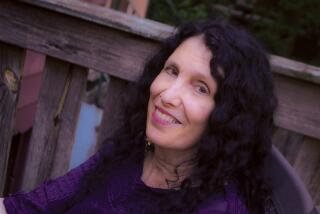With ‘Surpassing Certainty,’ Janet Mock provides her blueprint to self-love
The road to self-love and confidence is paved with good intentions. Along the way, the ups and downs of life can deter even the most diligent of travelers. There is no blueprint on how to navigate the world, especially if you’re a transgender woman of color. But with her second book, the recently released “Surpassing Certainty: What My Twenties Taught Me,” activist Janet Mock is attempting to provide a model for those coming behind her.
“I was very resistant to writing a memoir again, because at that time I was only 32,” she said, describing her thoughts during the book tour for her first book, “Redefining Realness: My Path to Womanhood, Identity, Love & So Much More.” While attending a writer’s retreat however, she changed her mind.
“When I sat in that cottage by myself with no Wi-Fi and no distractions, only surrounded by books and my legal pads, I found that I had so much more that I wanted to write, something that felt more urgent than my first book,” she said by phone from New York City.
The result is a candid reflection on her 20s, a time of self discovery, risk taking and eventual success that now makes Mock one of the most visible and defining voices of trans experience. Just days after “Surpassing Certainty’s” release and ahead of the Los Angeles stop of her book tour — 7 p.m. Wednesday at Barnes & Noble at the Grove — Mock spoke with The Times about her former years as a sex worker, her love of spam and lessons from her younger self. The conversation has been edited.
Why did you decide to write a second book?
“Redefining Realness” was about the struggle with my body in the context of how much agency can I have. But I realized there was a whole gap in my life before I became public where I wasn’t open about being trans. It wasn’t something that I talked about on a daily basis. I had that privilege and access to not be met with my trans-ness in every space that I went to. And I felt like this was a genre that needed to be complicated a little bit.
With “Redefining Realness,” I complicated the transition memoir through being a young person and a person of color. This time, it’s a coming-of-age memoir, but this is one about a trans women of color that wasn’t out during that time. I wanted to offer young girls growing up, girls literally right now trying to slay these streets, a possible road map to follow — or one to not follow because I was sometimes too sloppy.
Where does the title “Surpassing Certainty” come from?
It came from my queen, Audre Lorde, one of my heroes. She created a blueprint for me to write myself into history. In an essay in “Sister Outsider,” she talks about the sacrifices that come when speaking up: “And at last you’ll know with surpassing certainty that only one thing is more frightening than speaking your truth. And that is not speaking.”
That was always going to be the epigraph, but not the title. But “surpassing certainty” means there is a sense of us knowing ourselves without any compromise, knowing unapologetically we’re something that goes beyond just being here. There is something even more certain in the world and sometimes that is just us speaking our truth and showing up as our full serves.
Throughout the book, you speak openly about sex work and being a stripper. Why’d you make that decision?
For me, it’s about resisting and unlearning the things I was told I needed to be silent and ashamed of. It started with my identity and growing up as a trans girl. I [was told] I needed to be silent about this and grapple with it in the corner. There’s a similar stigma attached to the sex industry and engaging in sex work. So often we dismiss, objectify, push and marginalize women and folk who are engaging in this work when oftentimes it’s the only work available to low-income people, particularly queer and trans people and women of color. We tell them that we don’t have any other opportunities for them, but the way in which you know how to use the only resource you sometimes have, your body, we’re going to throw on this layer of stigma and shame and tell you you’re not worthy of existing. For me, it’s about ensuring that I don’t forget that I came from that world and I was built by that world. I will not forget my people. I have a firm stiletto planted in the streets and in those clubs with those girls.
As you came into loving your body, you also discovered that “ours is freedom hair.” What do you mean by that?
At the time, when I first undid my hair from braids and extensions, I didn’t know it was freedom hair. I had to unlearn what everyone had said about my hair, the texture, the length, about it not being sexy or attractive because it didn’t fall in the way I saw in Pantene ads. But as I grew up and looked back, I thought about the ways in which my ancestors wrapped their hair in rags in order to not be seen. But there is something in being able to show my hair as it grows out of my head and adapt and evolve it in the ways I want, to have it be an extension of my blackness and Hawaiian-ness.
It’s also linked me to so many black girls on the street because there is no greater smile or nod that I get or give than when I see a girl wearing her hair how she wants to. It’s a culture that tethers me to them.
Spam is a popular meat in Hawaii and central to your upbringing. Do you still eat it?
I do! [laughs] There is this place in Harlem who call themselves a Hawaiian restaurant — they’re really not but it’s good enough for someone who is a 12-hour plane ride away from home. They have spam musubi and I order it like once a month. [laughs] When I eat it, I know it’s not classy but it reminds me of home.
What do you hope people take away from “Surpassing Certainty?”
For so long, I guilted myself for not being more active and vocal and visible during those years that corresponded with my 20s, but I hope it inspires other people to take time for themselves. We have this pressure, specifically within the LGBTQIA movement, where we tell people to “come out, come out wherever you are. That’s your first political act.” But I had come out. I came out at 12 years old and I lived my truth and decided to do me for a few years and figure out who I was. I wanted to have access to all those things my peers had access to — leaving home, going to college, going to grad school, getting my first job and starting my journalism career. I think we need to be able to have that time for ourselves before we can think about going out and trying to do anything for anyone else.
I think the greatest lesson would be to take the time for yourself. You’re deserving of that time and every single fantastical, outrageous dream you have that you want to accomplish. I hope [“Surpassing Certainty”] gives people a road map that they can possibly follow or at least show them someone who did that and lived enough to tell it.
For more information about Janet Mock’s book tour, click here.
Get your life! Follow me on Twitter (@TrevellAnderson) or email me: trevell.anderson@latimes.com.
More to Read
Sign up for our Book Club newsletter
Get the latest news, events and more from the Los Angeles Times Book Club, and help us get L.A. reading and talking.
You may occasionally receive promotional content from the Los Angeles Times.







